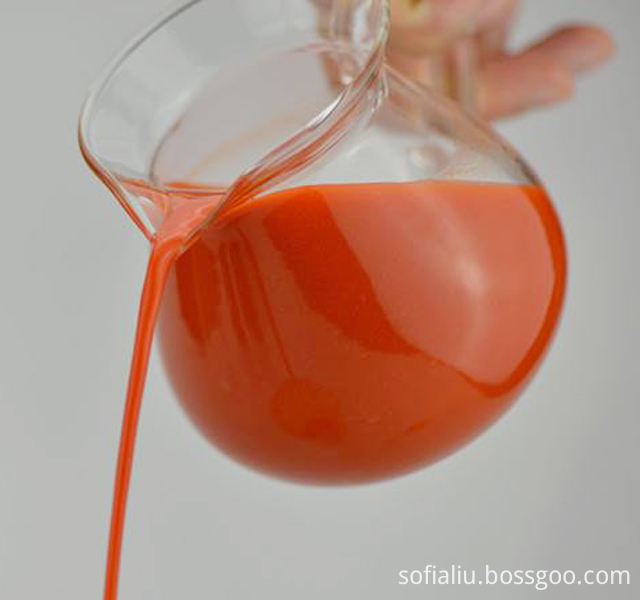Green tea manufacturing process
Green tea manufacturing process
The processing of green tea is simply divided into three steps: fixation, rubbing and drying. The key is the first process of the initial process, namely, fixation. The fresh leaves pass the fixation and the activity of the enzymes is passivated. The various chemical components contained in the leaves are basically changed by physical and chemical reactions under the conditions without enzymes, thus forming the quality characteristics of green tea.
(1) Fixing
Fixing plays a decisive role in the quality of green tea. Through high temperatures, the properties of enzymes in fresh leaves are destroyed, and polyphenols are prevented from oxidizing to prevent the leaves from reddening. At the same time, some of the moisture in the leaves is evaporated to soften the leaves, creating the conditions for kneading and forming. As the water evaporates, the low-boiling aromatic substances in the fresh leaves that have the green grass volatilize and disappear, and thus the aroma of the tea is improved.
In addition to special tea, the process is carried out in a fixing machine. The factors affecting the quality of fixation are fixing temperature, casting amount, fixing type, time, and fixing methods. They are a whole and involve each other.
(2) rubbing
Rubbing is a process of green tea shaping. By utilizing the external force, the blades are kneaded and lightened, the rolls turn into strips, the volume is reduced, and brewing is facilitated. At the same time, some of the tea juice overflowed and adhered to the leaf surface, also has an important role in improving tea taste concentration.
The process of making green tea is divided into cold rubbing and hot rubbing. The so-called cold kneading, that is, killing the leaves after cooling off and rubbing; hot kneading is to kill the leaves without cooling the hot and rubbing. The young leaves should be kneaded to keep the bright green and yellow color in the green leaves. The old leaves should be kneaded in order to facilitate the tight binding of the strips and reduce the end of crumbs.
At present, in addition to the use of hand-operated tea, the bulk green tea has been mechanically kneaded.
(3) Drying
For the purpose of drying, evaporate water, and organize the appearance to give full play to the tea.
Drying methods include drying, frying and drying in three forms. The drying process of green tea is generally followed by drying, followed by frying. Because of the tea after rubbing, the moisture content is still very high. If it is directly fried, it will quickly form a mass in the pan of the frying machine, and the tea juice easily adheres to the wall of the pan. Therefore, the tea is first dried to reduce the moisture content to meet the requirements of pan frying.
Lycium sweet nature, Ping, owned by the liver and kidney, with nourishing liver and kidney, Liver eyesight effect, often with Rehmannia, chrysanthemum, yam, cornus and other drugs with the use. Modern medical research shows that it contains the carotene, betaine, vitamin A, vitamin B1, vitamin B2, vitamin C and calcium, phosphorus, iron, etc., with increased white blood cell activity and promote hepatocyte regeneration pharmacological effects of modern pharmacological experiments show that: Wolfberry has enhanced immune function, inhibition of tumor, lowering blood sugar, lipid-lowering, anti-fatigue and other functions.

Please feel free to leave us message.
Any inquiry would be replied within 2 hours on working days!
Production Specification Sheet
|
Product Name |
Country of Origin |
Ningxia in China |
|
ANALYSIS |
DESCRIPTION |
TEST METHODS |
||
|
Product Name |
Organic Goji Juice |
Conventional Goji Juice |
Conventional Contracted Goji Juice |
|
|
BRIX |
NLT 13 |
NLT 36 |
Organoleptic Inspection |
|
|
Color |
Bright auburn or Purple red |
Organoleptic Inspection |
||
|
Smell and Taste |
Characteristic |
Organoleptic Inspection |
||
|
Texture |
The fruit pulp contains, a period of few days the juice will appear pulp precipitation |
Organoleptic Inspection |
||
|
Total plate count(cfu/ml) |
NMT 1000 |
GB4789.2 |
||
|
Salmonella |
Absence |
GB/T 4789.4 |
||
|
Staphylococcus |
Absence |
GB 4789.10 |
||
|
Pb, mg/kg |
NMT 0.5 |
GB 5009.12 |
||
|
As, mg/kg |
NMT 0.5 |
GB/T 5009.11 |
||
|
Cu, mg/kg |
NMT 10.0 |
GB/T 5009.13 |
||
|
Pesticide Residue |
Absence |
NMT 0.2ppm |
GB/T 19648-2006, GB/T 200769-2008 |
|
|
Shelf Life |
12 months if stored in a cool ventilated dry place |
|
Package |
210kg/drum.,Internal: double aseptic bag. External: Drum |
|
Storage |
It should be stored under the dry and ventilated environment |
Goji Wolfberry Juice,Original Goji Juice,Wolfberry Juice,Natural Wolfberry Juice
Ningxia Wolfberry Goji Industry Co.,ltd , https://www.nx-wolfberry.com
